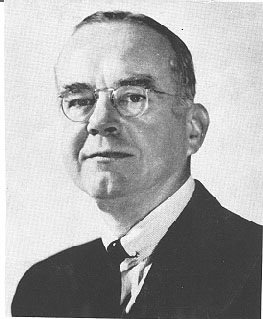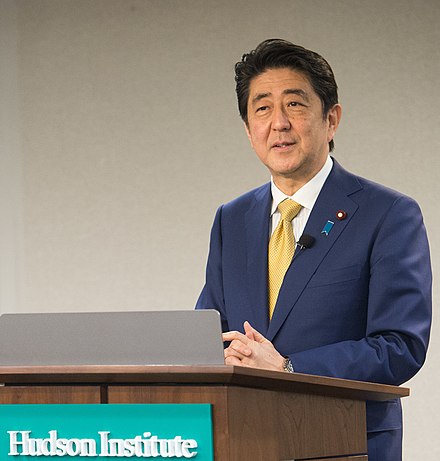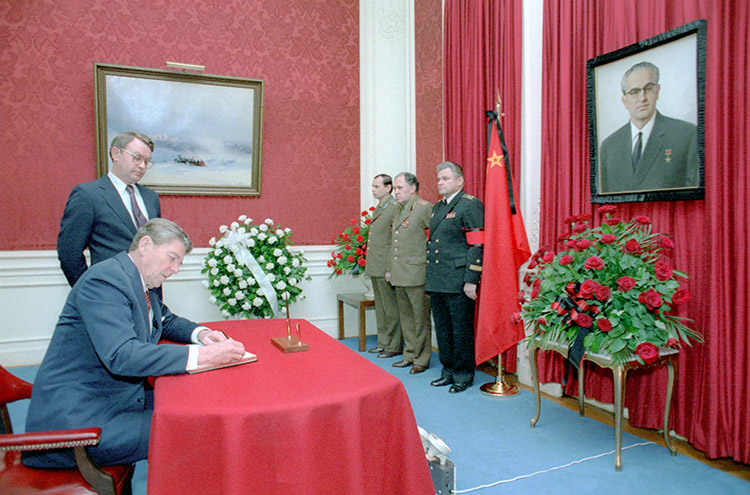An old gem previously posted here on September 21, 2018...
In Trotskyist circles, the US intellectual James Burnham is often regarded as *the* apostate extraordinaire, sometimes together with Max Shachtman, with whom Burnham collaborated during one phase of his political career. During the 1930's, Burnham supported radical leftist politics, playing an important role in A J Muste's American Workers Party. Burnham then joined the Trotskyist movement, where he and Shachtman soon formed a faction critical of American Trotskyist leader James P Cannon. From his exile in Mexico, Trotsky backed Cannon. As the supposed theoretician of the opposition, Burnham was singled out for special attention by Trotsky in a series of blistering polemics. These are collected in “In Defense of Marxism”, which also contains Burnham's somewhat peculiar response “Science and Style”. When the Shachtmanites broke with Cannon's Socialist Workers Party to form their own group, simply called the Workers Party, political differences between Shachtman and Burnham led the latter to resign from the party and completely break with Marxism. The Trotskyists triumphantly included Burnham's farewell letter in “In Defense of Marxism”. Burnham then turned sharply right, becoming a prominent Cold Warrior during the 1940's and 1950's. I know less about this part of Burnham's career. Apparently, he worked with William F Buckley on the National Review and eventually received a medal from a certain Ronald Reagan. Ironically, Shachtman also became a Cold Warrior, but in contrast to his erstwhile colleague, always claimed to be a democratic socialist. It's also interesting to note that George Orwell's novel “1984” is inspired both by Trotsky's anti-Stalinism and by Burnham's most famous book, “The Managerial Revolution”.
By contrast, “Struggle for the World” seems to be one of Burnham's lesser known works. It was published in 1947 and lays out a militant Cold Warrior program. Much of it is anti-Communism 101, which may explain why the book has been mostly forgotten. Burnham argues that the Soviet Union and its allies are preparing for World War III, and intend to literally conquer the world. Communists in all nations are gearing up for the war by shedding the “moderate” popular front policies of the last phase of World War II, when the West and Stalin were allies. New purges are to be expected. The United States is heavily infiltrated by Communists and their fellow-travelers, who are working around the clock to undermine the nation and its defense capabilities. While Burnham admits that the Soviet economy is in bad shape, he nevertheless regards the Soviets as an ascendant force. Totalitarian regimes can make up for economic failures and low productivity by forced mass mobilizations of the populace, all the while taking over the productive capacity of conquered territory. Above all, the Soviets and the world Communist movement capitalize on the weakness and confusion of the Western powers, principally the United States. Burnham doesn't oppose the purely military alliance between the West and the Soviets during World War II, but believes that the Roosevelt administration went too far, turning it into a de facto political alliance, with disastrous consequences in China, Iran and elsewhere. He wants a fast-track transition from cooperation to confrontation with the Soviet Union.
Interestingly, Burnham believes in Mackinder's geopolitics, which argues that control of the Eurasian Heartland is the key to world domination (rather than, say, control of the seven seas á la the British Empire). Since most of the Heartland is already under Soviet Communist control, Burnham believes that the Soviet regime objectively speaking had the best position in the struggle for the world. Geopolitically, America is peripheral. Therefore, isolationism is suicidal. The US must engage in the Coastland (Africa and the “outer” areas of Eurasia) and hence become an interventionist world power. This is the only way to stop the Communists from establishing world domination.
Burnham admits that Communism was originally oriented to the working class and peasantry, but regards it's subsequent evolution not as a “betrayal” but rather as a logical progression away from the toilers (who were only a battering ram to begin with). Firmly in control of Russia, the Communists could broaden their foreign appeal to other strata of society: first, towards liberals and other “progressive bourgeois” forces, later also to reactionaries (including Balkan monarchists, defected Nazi generals, etc). This expresses not a weakness of Communism, but rather proves that its much stronger than during its initial “proletarian” period. Communist “multi-nationalism”, whereby local nationalisms are co-opted and used by the conquering Soviets rather than discarded outright, also strengthens the Communist system. As for Communism evolving in a more “moderate” direction (in the United States, under the leadership of Earl Browder), Burnham believes that the Communist movement will always oscillate between “left” and “right” phases, depending on tactical exigencies. The ultimate goal remains unchanged: totalitarian world domination.
The author's anti-Communist program is almost breathtakingly honest. He explicitly wants the United States to create a World Empire based on monopoly of nuclear power. The US and Britain should form an outright political union with common citizenship. Continental Europe should unite in a federation. The World Empire will be formed through a combination of voluntary union, economic pressure, and outright force. Since everything is subordinate to the struggle for the world against Communism, non-democratic anti-Communists must also be supported (such as Chiang Kai-shek in China). Burnham informs his readers that an empire is compatible with democracy in the *imperial* nation, using ancient Athens and modern Britain as examples. At one point, he even implies that a nuclear war with the Soviet Union is preferable to inaction, since Western civilization will survive such a war! (Burnham was writing before the Soviets tested their first atomic bomb in 1949.)
Since the Communists are a highly disciplined force bent on undermining Western-style democracy, Burnham proposes that the Communist Party should be officially banned. Communist-led unions, civil right groups and other campaigns should be “treated differently” than non-Communist ditto. A similar policy to the one proposed by Burnham was later implemented by Joe McCarthy…
One reason why “Struggle for the World” is forgotten today may be that it deals with contemporary politics as they looked in 1947. Already two years later, the US lost its monopoly on nuclear weapons, creating an entirely new world situation. Burnham argues that a free market economy is obsolete, and writes from the perspective of a world not yet fully “globalized”. The book fails to predict the centrifugal tendencies in the Communist bloc, since the author doesn't regard Communist movements as truly nationalist. On other points, Burnham did hit the mark: great purges did indeed start in the Eastern bloc a few years later, Communist regimes (except maybe the post-Stalin Soviet bloc) have oscillated between “left” and “right” phases ever since, and the struggle for the world could ultimately only end with one side being thoroughly defeated. Burnham was also right that the majority of the people of the Soviet Union and its satellites opposed Communism, but it's interesting to note that the Russian Communists “managed the transition” after 1991 by officially morphing into Greater Russian nationalists. Burnham would no doubt have seen this as a stunning confirmation of his idea that Communism evolves by broadening its appeal – now, it's so broad that it even includes the very political forces the Bolsheviks once overthrew!
With that, I end this review.














